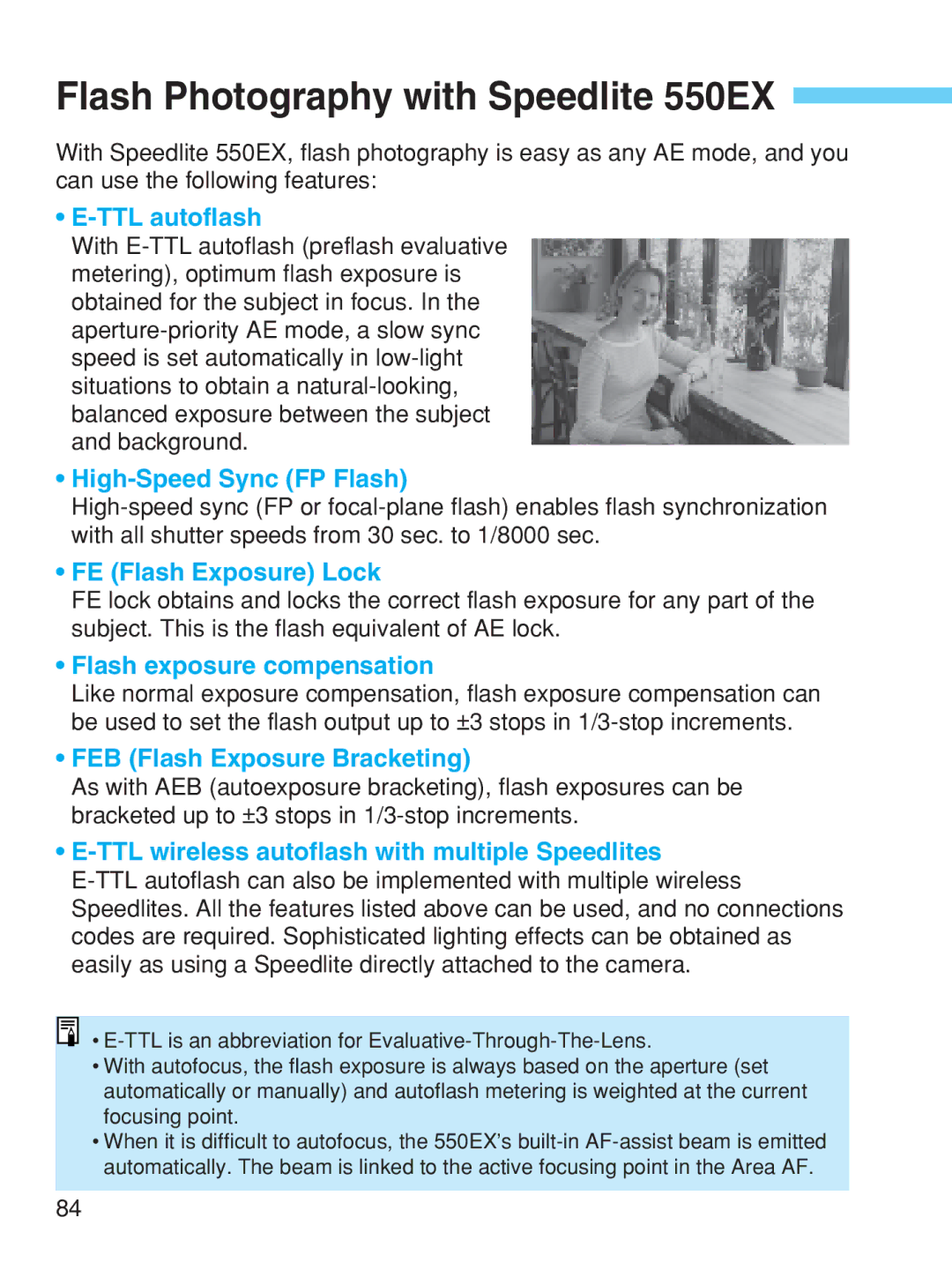
Flash Photography with Speedlite 550EX 
With Speedlite 550EX, flash photography is easy as any AE mode, and you can use the following features:
•E-TTL autoflash
With
•High-Speed Sync (FP Flash)
•FE (Flash Exposure) Lock
FE lock obtains and locks the correct flash exposure for any part of the subject. This is the flash equivalent of AE lock.
•Flash exposure compensation
Like normal exposure compensation, flash exposure compensation can be used to set the flash output up to ±3 stops in
•FEB (Flash Exposure Bracketing)
As with AEB (autoexposure bracketing), flash exposures can be bracketed up to ±3 stops in
•
•
•With autofocus, the flash exposure is always based on the aperture (set automatically or manually) and autoflash metering is weighted at the current focusing point.
•When it is difficult to autofocus, the 550EX’s
84
